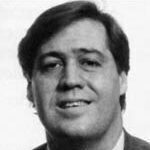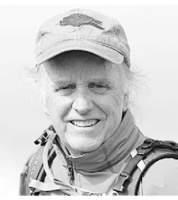
The Daily Beast
The Louisiana Nazis Who Courted Steve Scalise
1-03-15
by Jason Berry
Kenny Knight and Howie Farrell, the two men at the heart of the Steve Scalise scandal, were well known in Louisiana politics as longtime operatives of Duke’s Holocaust-denying hate machine.
In 1989, a newly registered Republican in Louisiana named David Duke won his only election by a fluke.
That year, a state representative in Metairie, an affluent Jefferson Parish suburb just across the line from New Orleans, vacated his seat to become a judge. The off-year special election into which Duke threw himself drew little media notice at first. Duke, who touted himself as a pro-life fiscal conservative, was known as an ex-Klan leader; he eschewed overtly racist language and instead pointed to crime in the city, criticizing affirmative action and minority set-asides. He landed in a runoff with John Treen, a silver-haired homebuilder, GOP stalwart and brother of the state’s first Republican governor, Dave Treen, who had left office in 1983.
Media coverage failed to probe the depth of Duke’s ties to neo-Nazi groups. But as national Republican strategist Lee Atwood and others realized, Duke’s background would be a stigma for the party if he won. So then-President George H.W. Bush and other prominent Republicans endorsed Treen in the House runoff. George W. Bush made a campaign appearance for Treen. Yet Treen was a poor match for Duke in the sound-bite department, or in appealing to the latent racial fears of many voters in Metairie, which was at the time a classic Reagan Democrats enclave. They liked what Duke was saying and were willing to look beyond what little they knew of his past.
During that 1989 campaign, I interviewed Howie Farrell, one of Duke’s campaign aides—and one of two longtime Duke allies, the other being Kenny Knight, who invited Steve Scalise to give the speech to a white racist group called EURO in 2002. Scalise was a state representative old enough to remember the notoriety of Farrell and Knight from years before.
That afternoon in 1989, Farrell stood on a street corner of Metairie Road as Duke handed out campaign fliers to motorists at the stoplight. After a day spent perusing the books Duke sold from his National Association for the Advancement of White People catalogue, I asked Farrell how many people died in the Holocaust. For Duke’s long-cultivated base, Holocaust denial was a scrim for anti-Semitism.
“I have no way of knowing,” said Farrell. “I can accept reasonable arguments on either side.” Church bells pealed from St. Catherine of Siena parish one block away. I asked Farrell, who claimed to be a Catholic, what this statement said to Jews.
“So what?” he replied with a smirk.
I stood with a tape recorder, listening to men denounce the liberal media controlled by Jews.
When Duke won the election a few days later, the rally that night in a Lion’s Club just down from Metairie Road featured the weirdest gaggle of people I ever saw in politics. The brother of a girl who made her debut in New Orleans society was shaking his fists in excitement. I stood with a tape recorder, listening to men denounce the liberal media controlled by Jews. Several of them disputed the figure of six million Jewish deaths in the Holocaust.
A small guy in his sixties with a megaphone voice was yelling: “Channel Four—Communist! Channel Four—Communist!” Channel 4 is WWL TV, the CBS affiliate.
A man who had driven two-and-a-half hours from Cajun country, one Joseph Vidrine, thundered into my microphone: “Judaism is Satanic!”
As zealots poured in from Arkansas and Mississippi, a wire service reporter got punched in the ribs.
Farrell and his fellow campaign adviser Kenny Knight were happy men that night—they’d won an election, their guy beat the liberal media and Treen, despite his endorsement by President Bush, by 224 votes.
News coverage of Duke’s triumph that night—other than on Channel 4, and what I wrote in a later commentary—ignored the hostility and anti-Semitism, treating it as a standard-issue victory party.
In fact, it was the shape of things to come.
Duke, and Knight and Farrell, have popped back up in the news cycle the last few days, as the House Majority Whip Steve Scalise (R., LA) has tap-danced around the revelation that he gave that 2002 speech, at the invitation of Knight and Farrell, to the European-American Unity and Rights organization, another hate group entwined with Duke.
Scalise has called the talk, which he delivered in a hotel outside New Orleans, “a mistake I regret.” He added (with dangling modifier): “As a Catholic, these groups hold views that are vehemently opposed to my own personal faith.”
House Speaker John Boehner and other GOP leaders have circled the wagons, vouching for Scalise. And yet the exploits of Farrell and Knight—bottom feeders well known to area politicians and journalists as allies of Duke —should have made Scalise run for the hills.
Knight was a long-time member of Duke’s NAAWP with its mail order operation selling books that promoted the “myth” of the Holocaust. Knight now brags that he donated $1000 to Scalise’s 2008 Congressional campaign.
And Duke, a media hound wallowing in the press attention, gleefully told the Washington Post that “Kenny would keep Scalise up to date on my issues.”
Knight and Farrell were both fired from the New Orleans Police Department before they gravitated to Duke. Both men were subjected to harsh media coverage in Duke’s gubernatorial bid.
“According to police records,” reported Tyler Bridges in a front page Times-Picayune story of Nov 12, 1991, “Farrell was fired from the police force in 1972 for bullying a citizen and then writing a false report about the incident.”
Farrell issued a ticket to an 18-year-old shipyard worker for speeding and an improper exhaust mechanism, according to the TP. When the man threatened to report him for harassment to the NOPD, Farrell arrested him.
“The investigation that led to Farrell’s dismissal revealed that Farrell had not clocked [David] Daigle’s speed,” wrote Bridges, who later published a book,The Rise of David Duke. “It also revealed that Farrell had harassed Daigle in the past, trying to bribe him for information. Farrell later claimed he was fired for union organizing.”
The NOPD fired Knight in 1973 for stealing lumber from a construction site as an off-duty cop. Knight appealed his firing to the Civil Service Commission. The Louisiana Fourth Circuit Court of Appeals upheld the NOPD decision, overruling Knight’s contention that he was framed by the two police officers who detained him. The judges noted that he told one of the officers he had “copped some lumber.” He was not prosecuted.
Knight and Farrell gravitated to Duke’s message of a beleaguered white race. They were major campaign figures in his 1989 election to the legislature, his losing U.S. Senate race in 1990, and his 1991 gubernatorial bid.
In the Louisiana governor’s race, Duke, running as a Republican, made the runoff with Edwin Edwards, the Democrat. The Louisiana Democratic Party’s TV spots in that race, showing grainy footage of Hitler and SS troops, blasted Duke for his web of neo-Nazi alliances.
Scalise was 26 at the time, a former LSU student body president who had yet to run for office during “the race from hell,” as political writer John Maginnis called the 1991 election.
Edwards, a flashy Cajun trailed by corruption scandals in three previous terms for governor, was a living symbol of Louisiana sleaze. And Duke was a closet Nazi getting exposed by an avalanche of reporting. He was also a charismatic, telegenic speaker with a face improved by plastic surgery several years earlier. He affected an anchorman finesse in apologizing for “past mistakes” as a Ku Klux Klan leader.
The state was in a deep recession as Duke galvanized a racial backlash. He won 60 percent of the white vote by hammering against affirmative action and welfare in coded racist messages. Edwards won in a huge landslide, 61 to 39 percent. What finished Duke as a viable politician was his astonishing array of ties to neo-Nazi and anti-Semitic hate groups as reported in the media.
In Duke’s meteoric rise, the local media had been slow to grasp the importance of his Nazi book list as an organizing and fundraising tool. He was still selling books on the myth of the Holocaust from his state legislative office six months after he won the ’89 race. When news of his book sales broke, John Treen and two members of the Republican State Central Committee pushed the party to censure Duke.
GOP leaders refused; they saw that Duke was pulling blue-collar Democrats to the party. Meanwhile, the Anti-Defamation League issued a statement deploring the state GOP for its failure to censure Duke.
During coverage of that issue, Farrell went on a WSMB AM radio talk show to defend Duke. In the broadcast, Treen read a letter that the Loyola University President, Rev. James Carter, S.J., had sent before the election to area alumni, deploring Duke’s NAAWP group for what Treen called “anti-Catholic doctrine.”
“That’s not true,” Farrell retorted.
Treen countered: “Specifically, anti-Semitism and bigotry and Nazism are considered contrary to Catholic doctrine. Now, Father Carter made his statement … Are you calling Father Carter a liar?”
“Yes I am,” said Farrell. “Yes, I think Father Carter is something less than honorable. I think he has mislead the community for a number of years, dating all the way back to his initial involvement in the civil-rights movement.” In response to the broadcast, Carter declined to comment. A Loyola spokesman said: “Consider the source.”
Four years after Duke’s losing gubernatorial bid, Scalise—an arch-conservative of gentlemanly demeanor—won his state house seat. That was in 1995, the year that GOP gubernatorial frontrunner Mike Foster reeled from news coverage that he secretly paid Duke $150,000 for a list of supporters. A grand jury investigated but found Foster had broken no law. Critics accused Foster of giving Duke a payoff to stay out of the race; that was never proven. Foster won the governorship.
Scalise watched as Duke’s toxicity registered across the political grid. Politicians who openly associated with Duke, or his hard-core associates, did so at their own risk.
Duke kept running for offices and losing by ever-greater margins.
He stopped after his 2003 sentence of 15 months in a federal prison for defrauding donors to his white supremacist fundraising projects, using money for gambling trips in Las Vegas and Gulfport.
Knight and Farrell were true believers as Duke’s post-prison career of Holocaust denial took him to speaking venues in Austria, Ukraine, and even Iran, in 2006, where he told the AP: “The Holocaust is the device used as the pillar of Zionist imperialism, Zionist aggression, Zionist terror and Zionist murder.”
What is it about Duke loyalists that Scalise missed?
Gambit, New Orleans’ alternative weekly, reported that because of the EURO workshop where Scalise spoke in 2002, the Iowa Cubs minor league baseball team cancelled reservations at the Best Western Landmark for a May 16-19 series with the New Orleans Zephyrs.
“We would just as soon stay away from a group that will create controversy,” the Cubs general manager Sam Bernabe told the paper.
“A contract to book this event was made some time ago, and it is our practice to fulfill our contractual obligations,” a spokesman for the hotel said. Our company does not share the views of this organization.”
Knight is now telling news outlets that he invited Scalise to speak at a neighborhood association that happened to be meeting in the same hotel.
Veteran Louisiana journalist Jeremy Alford, writing in the New York Times, quoted a person at the EURO conference who said that Scalise did in fact speak there on “how America was founded on Christian principles, Christian men who founded this country and…how we’re getting away from that.”
Scalise’s “mistake” may pale against Duke’s long career as a merchant of hate; but the House Majority Whip is putting the Republicans through the same kind of wringer that Duke did in the bad old days, and stretching his own credibility thinner with each passing day.
New Orleans Advocate columnist Stephanie Grace writes that, years ago, Scalise told her that he was like David Duke, but without the baggage.
His baggage now is the unanswered question: why would any politician in his right mind speak to a group associated with Knight, Farrell and Duke?
###
This piece was published on the Daily Beast on January 3, 2015. Jason Berry received a 1992 Alicia Patterson Fellowship for his coverage of demagogues in Louisiana. His books include Render unto Rome and a novel about Louisiana politics, Last of the Red Hot Poppas.






